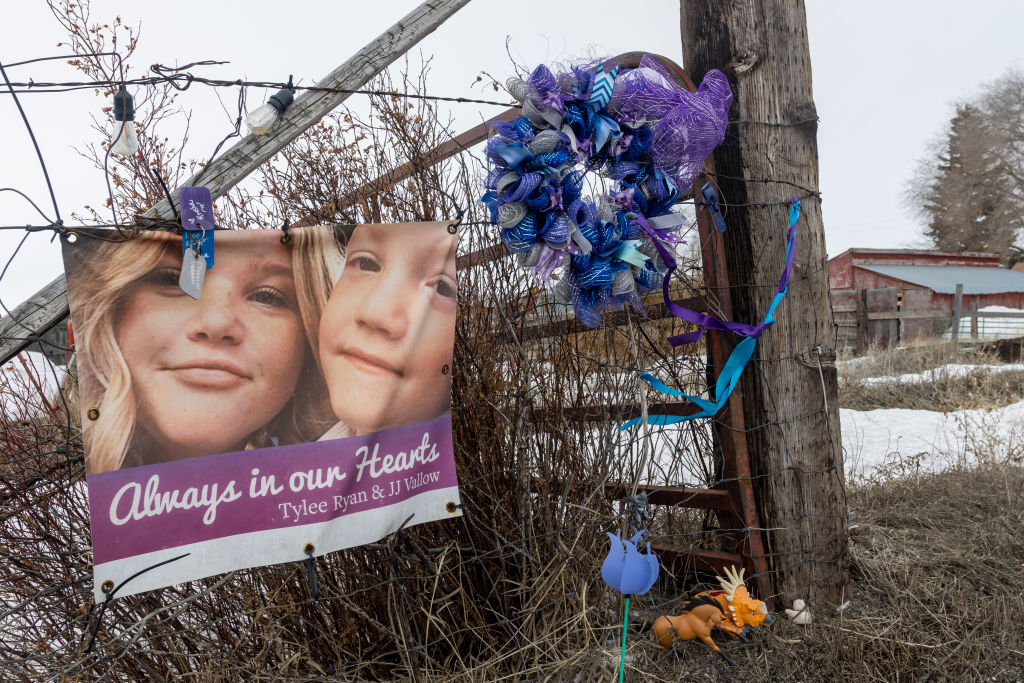‘It destroys you’: Grieving B.C. dad calls for
involuntary youth detox program
“When you’re on the sidelines watching your child self-destruct and you can’t do anything to force them into rehab, it breaks your heart,” grieving father Greg Sword told Global News.
His daughter Kamilah was only 14 years old when she died from an overdose of MDMA, cocaine and hydromorphone.
In the months leading up to her death, she was hospitalized twice after overdosing and met with counsellors and psychiatrists.
But it wasn’t enough to save her.
“It’s disheartening to be in B.C. and finding out that if I lived in a different province, I could have forced my daughter into rehab,” Sword said.
In Alberta, there is a program called PChAD, which stands for Protection of Children Using Drugs Program.
Under that act, parents can ask for a court protection order and involuntarily commit their child under 18 to a detox and stabilization safe house for up to 15 days.
Sword said his daughter’s situation left him feeling hopeless and alone.
“People judge you,” he said.
“You constantly get judged. And you feel like you’re a bad parent. You feel like you’re you’re screwing up, you feel like you’re making mistakes constantly and anytime you reach out, the answer’s ‘no.'”
Sword said it was challenging that even when his daughter was ready to receive help, there was no space for her in a rehab facility.
“It’s just a messed up thing where a child can’t vote, can’t drive, can’t get alcohol, but they can make the decision of what drug they want to use,” he said.
“Even though it’s supposed to be illegal for them, but they can choose whatever drug they want and if you’re a parent and you find out, you can’t do anything to stop them from doing it.”
Sword said the experience was frustrating and upsetting.
B.C.’s Minister of Mental Health and Addictions, Jennifer Whiteside, was not available to speak to Global News about the issue but provided a statement.
“We’re taking significant steps to expand access to treatment and create more early intervention services for youth, aiming to prevent small problems from becoming bigger in the future,” Whiteside said in the statement.
“For example, we’re opening Foundry centres in 35 communities, offering free counselling, health, and addiction services for youth as young as 12. We are also expanding youth treatment beds and services, supporting thousands of young people each year to get the help they need.”
In a follow-up statement, the ministry added that it takes the need to balance individual rights with the obligation to help people living with mental illness seriously, and that the government’s priority remains voluntary treatment.
“There are situations where patients need to be held involuntarily, and the BC Mental Health Act does provide tools for physicians in those cases,” it said.
BC, and Canada, for that matter, have yet to realize the connection between the use of drugs by teens and the spectacular rise in mental illnesses.
Critics of the Alberta program say involuntary confinement can harm the relationship between parents and children, worsening their substance use.
Timothy McConnell, better known as TJ, took his life in January 2021 in a solitary cell at the Edmonton Remand Centre.
His mom, Lana Greene, told Global News that going into the PChAD program with TJ was a desperate decision.
“It’s hard to explain, but he didn’t think anything was wrong, so he wasn’t wanting any help,” Greene said.
She said the process broke the trust between her and her son, who was 17 at the time.
TJ was 23 years old when he took his own life but Greene said she believes the involuntary rehab program was the beginning of the end for them.
“He was very angry,” she said.
Greene said she feels that PChAD was the beginning of the end for any trust her son could have in the rehab system.
“He didn’t want to speak to me. So I went to Edmonton and stayed at some family’s house so I would be nearby if he changed his mind,” she said.
“What ultimately happened, was his program ended and I picked him up and he came home and packed his bag and left again.
Youth and addictions expert, Danya Fast, told Global News that treatment programs like that can have a negative effect.
“They can sometimes conclude that the systems and services in place are absolutely not trying to help them,” she said.
“They’re trying to control them, and actually become very, very effective at evading care.”
Sword said he knows that PChAD isn’t a perfect answer for youth who need help with drugs and substance abuse but he believes it would have made a difference.
“Now I’ve got nothing,” he said.
=====================================================================================
Chad Daybell sentenced to death
for killing first wife, 2nd wife’s kids
Chad Daybell should be put to death for the murders of his first wife and his second wife’s two youngest children, a jury has decided.
He was found guilty of first-degree murder and conspiracy charges last Thursday, after a lengthy case where prosecutors argued his crimes were fuelled by sex, money, power and “doomsday” spiritual motivations.
According to CNN, Daybell maintained a neutral expression as the death sentence was read in court. The judge said jurors had “found beyond a reasonable doubt … that the aggravating circumstances when weighed against the mitigating circumstances do not make the imposition of the death penalty unjust.”
To impose the death penalty, the jurors had to unanimously find that Daybell met at least one of the “aggravating circumstances” that state law says qualifies someone for capital punishment. They also had to agree that those aggravating factors weren’t outweighed by any mitigating factors that might have lessened his culpability or justified a lesser sentence.
The jury decided there were aggravating factors including an utter disregard for human life and the murders being especially heinous and cruel.
Last week’s guilty verdict came about a year after Lori Vallow Daybell, Daybell’s second wife, was also convicted for the murder of her children and sentenced to life in prison without the possibility of parole. She was also convicted of conspiring to murder Daybell’s first wife, Tammy, and has been accused of arranging her fourth husband’s murder so she and Daybell could be together.
The Daybell and Vallow Daybell investigation began in late 2019 when several family members reported concerns to police that they hadn’t seen or spoken to JJ and Tylee in months. Their bodies were eventually found buried in Chad’s yard in eastern Idaho in 2020.
Friends of the couple would go on to tell police, and testify in court, that the pair held fringe religious beliefs, including that they had been reincarnated in order to gather people before a biblical apocalypse.
Before Vallow Daybell’s two youngest children disappeared, she referred to them as “zombies,” former friend Melanie Gibb testified during last year’s trial. The couple claimed that zombies were people who had been possessed by dark spirits, and the only way to free the person’s trapped soul was to destroy their body by killing them.
Authorities believe the two children were killed in September 2019. Tammy was found dead on Oct. 19, 2019, a few weeks before Daybell and Vallow Daybell married, although it was initially believed she died in her sleep.
During Daybell’s nearly two-month-long trial, prosecutors painted a picture of a self-published author who wrote doomsday-laced fiction, promoted unusual spiritual beliefs including apocalyptic prophecies and tales of possession by evil spirits in order to justify the killings.
“This has been a tough case because of its complexity, both in telling the story of an investigation that spanned years and trying to figure out the best way to present it in a way that would make sense to others,” Fremont County Prosecutor Lindsey Blake said outside the Boise courthouse after the sentencing.
Daybell’s lawyer, John Prior, argued during the trial that there wasn’t enough evidence to tie Daybell to the killings, and suggested Vallow Daybell’s older brother, Alex Cox, was the culprit. Cox died in late 2019 and was never charged.
During the sentencing hearing, Prior asked the jurors to judge Daybell on his life before he met Vallow Daybell, describing her as a bomb that blew him off the trajectory of an otherwise wholesome life. But Daybell also declined to offer any mitigating evidence during the sentencing hearing. Mitigating evidence is often used to encourage jurors to have sympathy for a defendant in an effort to show that a life sentence would be more appropriate than capital punishment.
Were Chad and Lori drug users in their past, or were they simply nuts to begin with?












No comments:
Post a Comment